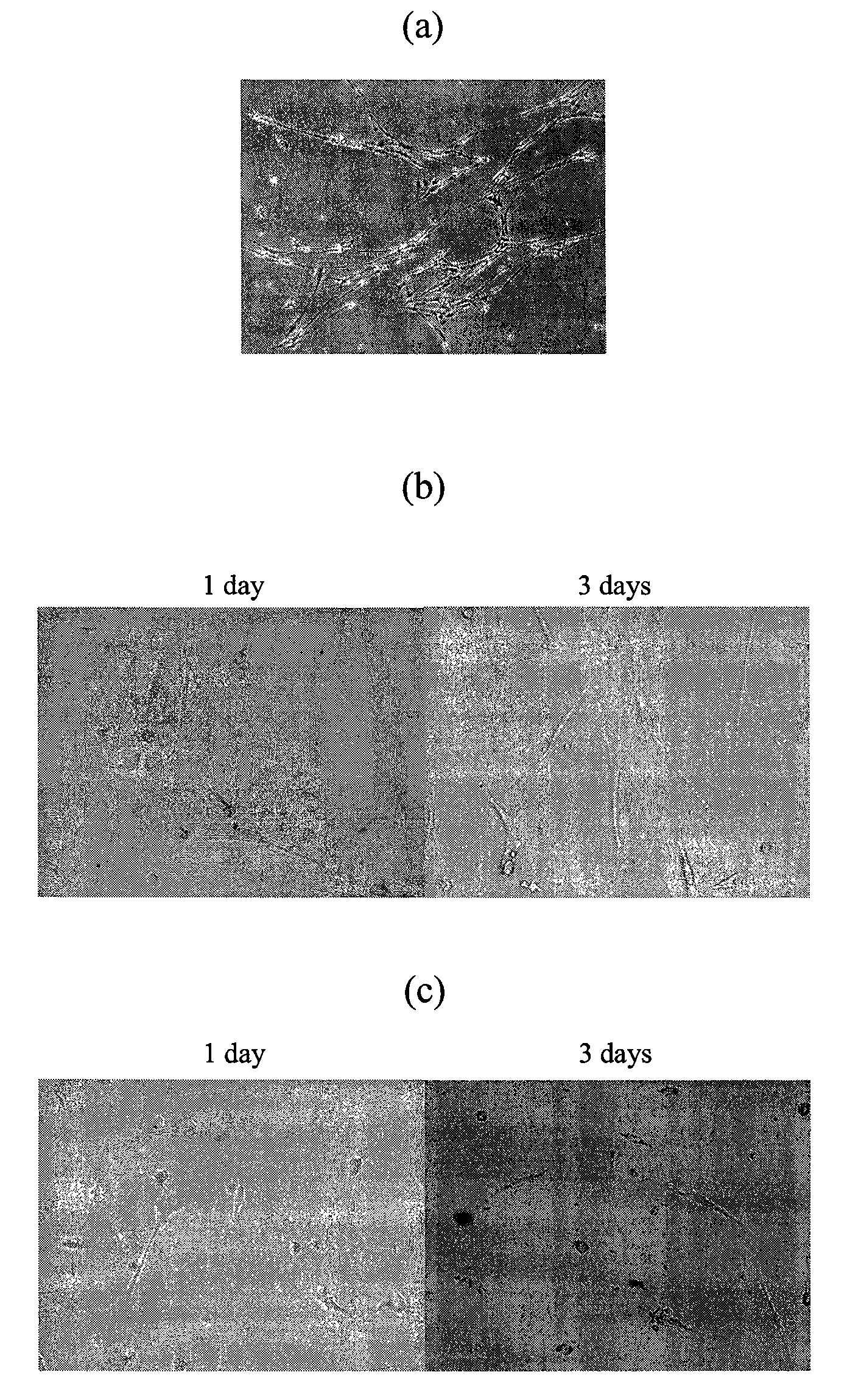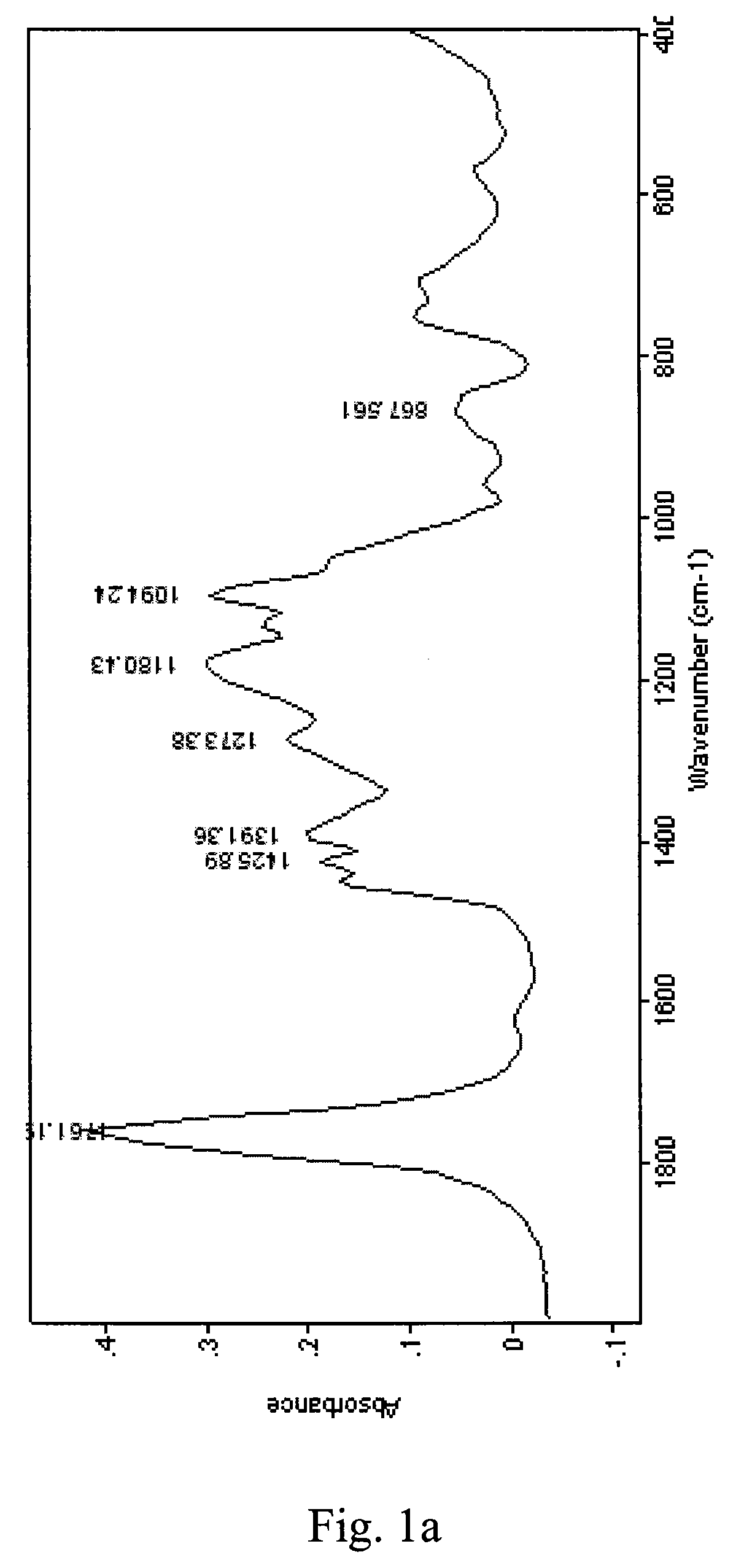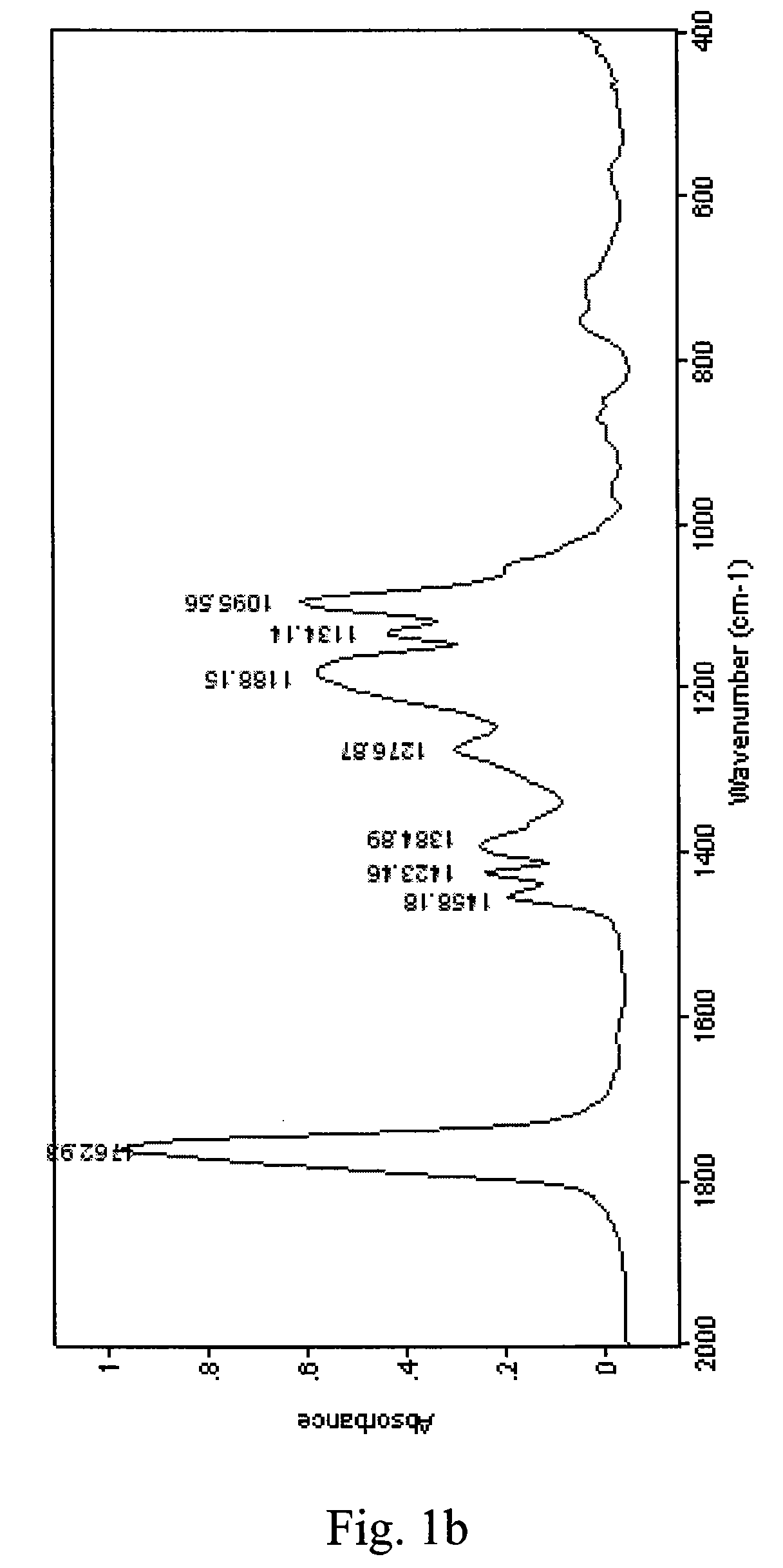Laminin-modified conduit for nerve regeneration and methods of manufacturing the conduit and regenerating nerves using the conduit
a technology of laminin-modified conduits and nerve regeneration, which is applied in the field of hollow conduits, can solve the problems of axons growing backwards into the proximal nerve stump, affecting the regeneration effect of nerves, and entering an inappropriate endoneurium, etc., and achieves the effect of reducing or eliminating many of the disadvantages and problems
- Summary
- Abstract
- Description
- Claims
- Application Information
AI Technical Summary
Benefits of technology
Problems solved by technology
Method used
Image
Examples
example 1
Preparation and Characterization of Laminin-Modified Polymer Films
[0041]1.1 Preparation of Polymer Films
[0042]Two kinds of polymer films were prepared. For the PLGA (Poly(d,l-lactide-co-glycolide) film, PLGA purchased from Sigma Chemcial Co., USA (50:50; Mw: 40,000˜75,000) was dissolved in Dioxane with gentle stirring to make a 5% (wt / vol) solution. Then, 250 μl of this solution was added into a 96 well microplate, making it soaked around the bottom. The solvent was evaporated in air at room temperature and dry PLGA films were obtained.
[0043]For the chitosan film, chitosan / acetic acid solution (2% w / v) was used instead. Chitosan (Mw: 645,000) with a degree of deacetylation>85% was supplied by Sigma Chemical Co. Acetic acid (98%) was purchased from Wako Pure Chemical Industries Ltd. The process that followed is the same as the PLGA film. Water was distilled and deionized using a Millipore Milli-RO 10 Plus filtration system at 18 MΩ resistance.
example 2
Functional Recovery Following Traumatic Spinal Cord Injury Mediated by Laminin-Modified Nerve Conduit
[0067]2.1 Materials
[0068]Chitosan, with average molecular weight of about 645,000, was supplied by Sigma Chemical Co. The degree of deacetylation (DDA) was determined to be 82.5±1.15% by 1H-NMR spectroscopy. Deuterium oxide (D2O, L-4501) and deuterium chloride (DCl, 35 wt % in D2O) was purchased from Sigma-Aldrich (USA). Acetic acid (98%, Wako Pure Chemical Industries LTD) and Ni—Cr wire (570 um) were used as received. All other chemicals and solvents were purchased from Sigma-Aldrich (Oakville, Canada) and used as received unless otherwise noted. Water was distilled and deionized using a Millipore Milli-RO 10 Plus filtration system at 18 MΩ resistance.
[0069]2.2 Analysis of the Degree of Deacetylation (DDA)
[0070]Chitosan with a DDA of 96.4±0.72% was synthesized by immersing commercially available 82.5±1.15% deacetylated chitosan flakes in a 40% aqueous solution of sodium hydroxide fo...
PUM
| Property | Measurement | Unit |
|---|---|---|
| pressure | aaaaa | aaaaa |
| pressure | aaaaa | aaaaa |
| concentration | aaaaa | aaaaa |
Abstract
Description
Claims
Application Information
 Login to View More
Login to View More - R&D
- Intellectual Property
- Life Sciences
- Materials
- Tech Scout
- Unparalleled Data Quality
- Higher Quality Content
- 60% Fewer Hallucinations
Browse by: Latest US Patents, China's latest patents, Technical Efficacy Thesaurus, Application Domain, Technology Topic, Popular Technical Reports.
© 2025 PatSnap. All rights reserved.Legal|Privacy policy|Modern Slavery Act Transparency Statement|Sitemap|About US| Contact US: help@patsnap.com



